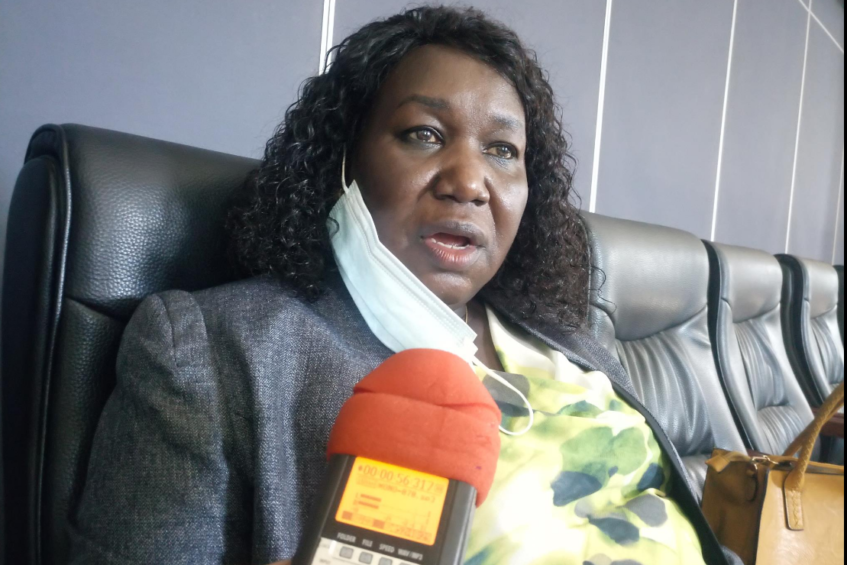You are here: Home | Featured | Health | National News | News | South Sudan struggles to suppress HIV transmission

Dr. Esterina Novello, Chairperson of the South Sudan HIV/AIDS Commission speaks to Eye Radio on June 6, 2021 in Juba, Credit|Charles Wote/Eye Radio
South Sudan has achieved little in suppressing HIV transmission in the country, the South Sudan HIV/AIDS Commission has stated.
This week, the world is marking 40 years of HIV response.
On June 5th, 1981, the Center for Disease Control reported diagnosing an unusual lung infection known as Pneumocystis carinii pneumonia or PCP in Los Angeles.
It was the first time that acquired immunodeficiency syndrome, the devastating advanced stage of HIV was reported in the United States.
This week, governments and health partners around the world are reflecting on the progress and response made to end the HIV epidemic.
“We are still far, we need to really work hard so that we don’t want to be left behind,” the commission said.
However, South Sudan has not made a significant stride to reduce transmission or move towards ending the pandemic.
“We are working hard to make sure that by 2030, new infection will be zero in South Sudan,” said Dr. Esterina Novello, Chairperson of the South Sudan HIV/AIDS Commission.
She, however, stated that public knowledge of the virus has improved and the level of stigma has reduced in the country.
“But again you may have those who are still living with HIV but are not transmitting it to other people, because they are using the barrier…to protect themselves. So now, when we reach that scenario, I think that is the time we can celebrate.”
According to the UNAIDs, an estimated 200, 000 people were living with HIV in South Sudan in 2016.
It disclosed that only 10 percent of people living with HIV were accessing life-saving HIV treatment.
The UN agency noted that children are particularly vulnerable, with fewer than 1,000 children living with HIV between the ages of 0 and 14 years on HIV treatment.
Lack of resources
South Sudan launched the 2018–2022 National Strategic Plan on HIV and AIDS, which will provide a solid monitoring and evaluation framework for the implementation of the national AIDS response.
The response includes addressing issues of stigma which often leads to discrimination and other violations of human rights that affect the well-being of people living with HIV.
Dr. Novello said the country requires enough funding for an HIV program that builds resilience, protects rights, and promotes freedom from violence, peace, and stability in South Sudan.
“We are looking at not less than $300 million…but now what we are getting only $27 million,” she disclosed.
“We are going to have a problem of buying and delivering the medicine, creating awareness, and other HIV intervention programs.”
She called on “the international community in spite [of] the COVID-19; we should also not forget HIV. All the nations should mobilize money for HIV.”
South Sudan is currently participating in a virtual fifth United Nations General Assembly High-Level Meeting on AIDS that began on the 8th of June.
The meeting is expected to adopt a new political declaration to guide the future direction of the HIV response.
Support Eye Radio, the first independent radio broadcaster of news, information & entertainment in South Sudan.
Make a monthly or a one off contribution.
Copyright 2024. All rights reserved. Eye Radio is a product of Eye Media Limited.